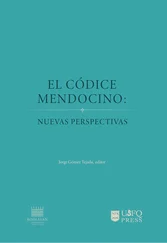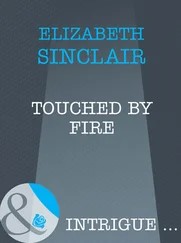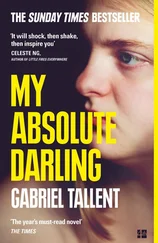Somebody’s gotten through, not long before. Somebody out in front, whose tracks are not snowed over.
The hospice worker had said, “You need to prepare for his being pretty far gone. It’s been a steep slide down for the last ten days. He’s lost a lot of weight.”
Visible through the roiling snow, a frayed blush — taillights.
What counts as preparation for his being far gone? Where do you start? Do you warn yourself that where you are used to strength there will be frailty?
Veiled rose coalesces into emergency red.
Or that he may not recognize you?
The taillights slew through a long arc that carries them well out into the median, and when it has slid sideways as far as it can go the car spins around, snow jetting from the drift it shears through, spurts flaring as it scrapes deeper into the drift and is locked in place, neither the skidding spin nor its concluding jolt hard enough to have injured anyone inside, she hopes, but probably they’re going to spend the night there, and she hopes they have a cell phone and with luck even a blanket and that they know about clearing the tailpipe every hour, the car already fading as she passes, its outline obscured, its headlights like holes torn through to some other, radiant world.
5
Last thing I need you to do, big guy , she coaxes the SUV, is sidle in close to the curb to be out of the way of the plow. Her brother’s and sister’s and sister’s husband’s snowed-over cars, and a fourth she doesn’t recognize, hospice worker’s or minister’s, occupy the driveway, her parents’ duplex, on the left-hand side of the shared facade of ocher brick, untransformed by the fact that her father lies dying within. Her cell tells her No messages , and she calls 911 and explains to the dispatcher where she saw the car go off the road into the median an hour ago, and the dispatcher says Thank you, ma’am , and she says Did anyone find them yet? and the dispatcher says I don’t know about that ma’am, there’ve been lots of calls tonight as you might imagine , and as she climbs down into the street, striped hat on and her bag slung over her shoulder, her stupid too-high heels wanting to skid out from under, she remembers her spin in the rental-car lot and brushes snow from the bumper, exposing several long scratches, and when she straightens up she tucks her freezing hands in her armpits and remembers her father scooping snow from the windshield of their station wagon, dropping it into the cupped hands of her five-year-old self, her father saying Pack it good and tight. Now throw.
6
Cold that can freeze the tears in your lashes, though there are no tears in her eyes, not then, facing that door. In three previous, widely spaced visits to this place where her parents have lived for the last ten years she conceived an aversion to the doorbell, garishly loud in contrast to the mutedness within the duplex, whose only raised voices are those of talking heads disputing on political programs, The Situation Room and Inside Politics , her father an obsessive follower of matters political, such programs his particular passion, if passion is the word for an interest so relentlessly lucid. He was an assistant secretary of agriculture, and once said in her hearing that though he’d never risen as high as he’d hoped to, nonetheless he had his view of the Washington Monument, and when on one long-ago visit to his city, she had stopped by so that the two of them could go for lunch, she had been led from the secretary’s antechamber into his office and left there to wait, her dad having been detained elsewhere, and it was like childhood again, like the secret times the child-you gained access to your father’s public existence. He was expecting her, of course, yet she felt a sense of trespass at finding herself alone in his true habitat, gazing out of his window because that was the view he gazed on daily, only gradually realizing that the Washington Monument was not visible from that window, and turning to the office’s only other window, discovering she had to jam herself against one side, cheekbone to the casing, in order to make out not the whole monument, but only its sharp vertical edge. When she sets her thumb against the button, the gloomy, whimsical notes toll on the other side of the door, and to her surprise they are hard to hear — but now she, at least, has made an overture, and she wants this last minute of her apartness from them to unfold slowly, the snow falling, the tears freezing in her lashes, for finally there are tears. No matter what happened between them she has always been guilty of believing she was responsible for him, and that was puzzling, not only because she was the child and he was the father, but because he was a vigorously self-reliant, hardheaded person, and it is hard to imagine what he might have needed protecting from. There was one story, though, she thinks, blinking her icy lashes, the bell’s notes announcing her arrival to her father if he is still conscious and can put two and two together. I’ll never get out of this world alive , her father used to say, or sing, maybe that was from a song, he had often sung snatches of old bluegrass or hillbilly songs and done a sloppy shuffle in his scuffed leather house slippers, his knees swinging out, then in, a bandy-legged shambolic dance, hands in his pockets, grin widening as he sang Rolling in my sweet baby’s arms—
Or, what was it, Gonna lay around that shack
Till that freight train comes back
— can those be the words?
The story is set in his childhood, in Tennessee, one spring when his mama had done a favor for a friend of hers, a sweetly interfering Baptist lady, driving deep into the mountains, finding the cabin belonging to the elderly bachelor uncle of the Baptist lady’s only after many wrong turns on dirt roads whose relentless switchbacking began to wear on his mama, as he could tell by her protestations to the Baptist lady that this was no trouble, no trouble ’tall . “Winter was bad back in here, Homer used ever’ last stick of kindling,” observed the Baptist lady as his mama parked the Model T on the scrap of cleared ground where the woodpile once was, overlooking a steep drop at whose base ran a crick high and fast with snowmelt, an erratically sparkling strand whose cool resonance lured a mockingbird into trying water sounds, the boy in the backseat bored, counting the june bugs pasted to the windshield or picking at his toenails, barefoot as usual since he was not a boy you could keep shoes on, his mama in the front seat tending to her own thoughts, an unusual woman if he could have known it then, an exception to the rule that women did not drive, and if she didn’t seek to ameliorate the monotony of their long wait for the Baptist lady to finish with her visit, the relation of adults to children was different then, formal, the adult under no obligation to try to amuse a child, no question of the boy’s being allowed out to play, either, since the elderly bachelor uncle was no kin of theirs and good manners required him and his mama to remain confined in the car, and the knot at the nape of his mama’s sunburned neck was boring to the boy, as was the set of her broad rounded shoulders in the floral print of her one nice dress, navy rayon with daisies detailed down to leaves and stems, and that bothered him, the messily yanked-up, strewn appearance of the daisies, and maybe partly due to his aversion to it the print would prove indelible for him, enduring as long as memory was capable of generating internal visions (this may be over for him now; she blinks); when he wanted more to ponder he had bent forward and studied, through the windshield, the crick glittering a stony near-vertical eighth of a mile below, flashing between toppled boulders, through a litter of sun-starved trees, and he was watching the crick when the car lurched against the caterwauling resistance of the failing hand brake, evergreen branches whisking past as it tipped over the brink and bolted down, jarring rocks free as it went; there was a quaking pause; his mama threw open her door and abandoned the car; whatever the impediment had been, it whiplashed free, sending the car skidding, battering, threatening to topple end over end, door banging, the steering wheel yanked back and forth, stones flying past its windows, the car a viciously shaken tin can, the boy tossed from roof to floor, hearing the shrill screeeeeeeeeee of an adamant object raking along the undercarriage as the car reared up and balked, its windshield full of amazed blue sky, stuck with the same dead bugs as ever, the engine ticking and a front wheel revolving, some stick or branch snared in the wheel well issuing a series of decelerating thumps, above that the boil and sluice of trammeled snowmelt. When the boy ducked out the canted door and jumped, clay squelched between his toes. If he’d had a fishing pole he could have cast his line in from here, not that there were any fish in that churn. He squatted to inspect the twilight beneath the car: a stump jammed into the front axle held it in place. He waited, swatting at gnats drawn to his terror-sweat, his mama and the Baptist lady calling his name. Alerted by their agitation other parts of him spoke up — bruises, scrapes — but his voice refused. He had used it up screaming on the way down. From a chink in oil-spattered moss emerged a salamander, arraying its tiny impeccable fingers handhold by handhold as it clambered to the stump’s crest and undulated from view. Once it was gone he felt the wreck was over, and getting to his feet he started back up the mountainside, following the zigzag course razed through the woods, the women’s cries unceasing till he stepped back out into brightness.
Читать дальше












